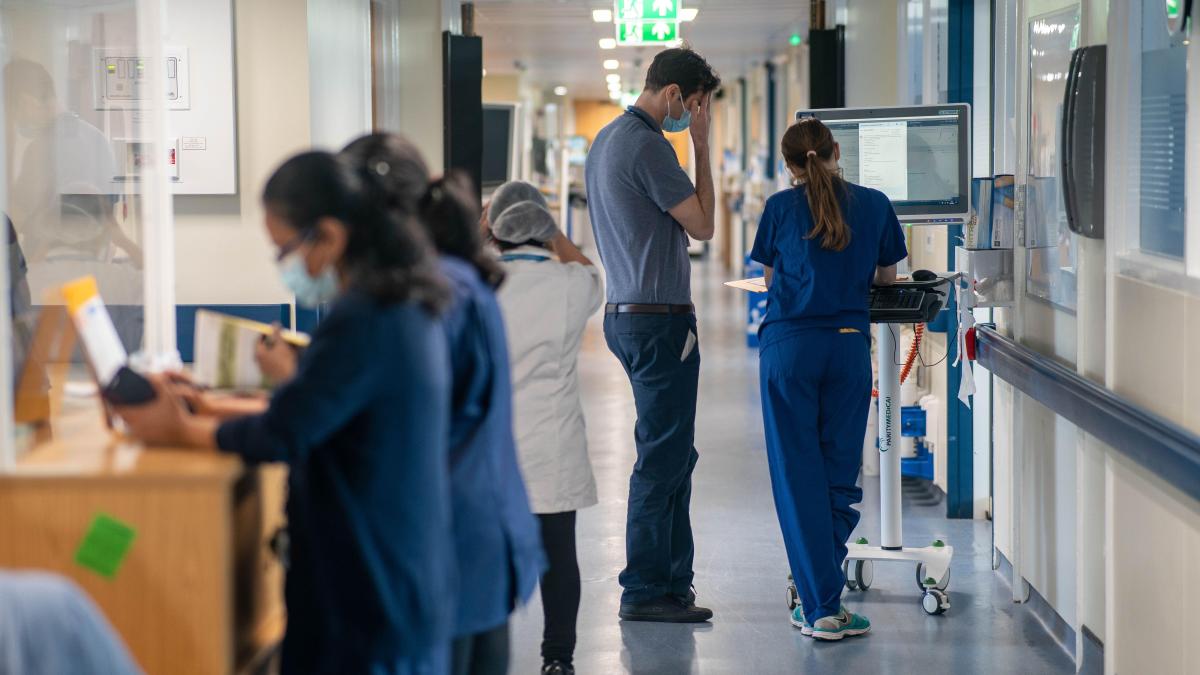The NHS should train more doctors as generalists instead of requiring them to pick a medical specialism early in their career, a think tank has said.
At present junior doctors must select a specialism, such as cardiology or respiratory, just two years after starting work to progress up the career ladder and become a consultant.
The Re:State think tank has argued in a report that this siloed approach is causing “gridlock” in hospitals, as patients with multiple conditions are “bounced around” between different specialisms.
• Consider funding NHS through compulsory insurance, health chiefs told
A major review led by England’s chief medical officer, Professor Sir Chris Whitty, recently warned of the risks of over-specialisation, calling for NHS reforms to ensure that doctors retain generalist skills.
The bulk of NHS demand comes from people with several long-term health problems, who often get stuck in hospital waiting “days for multiple different specialties to weigh in”.
The report, titled Ending Patient Gridlock, urged the NHS to create thousands of new training posts for medical generalist consultants, known as “hospitalists”, who could take charge of whole wards.
They would have a depth of knowledge in treating multiple long-term conditions, and be trained to co-ordinate different specialist treatments. It would mirror a model that is long established in countries including the United States and Australia.
Two thirds of over-65s in England have at least two long-term health conditions such as diabetes, heart failure or arthritis, which is known as multimorbidity.
The Re:State report warned that NHS hospitals are ill equipped to deal with an ageing population due to a “hyper-specialised model”, which means patients require the input of multiple different consultants. “Having doctors responsible for one organ group creates substantial bottlenecks in hospitals,” it said.
The report’s author, Rosie Beacon, the head of health at Re:State, said that too many patients “fall between the cracks” and get “bounced around” between traditional medical specialisms.
• NHS England shake-up will divert patients into community care
She said: “The majority of patients that present at A&E have more than one long-term condition. They currently have to get the opinion of several different specialties at every stage of their care.
“They might have atrial fibrillation, which means they need a cardiologist; lung disease, which needs a respiratory consultant; and diabetes, which needs an endocrinologist.
“This delays every possible decision. It slows down moving them from A&E, issuing prescriptions, engaging with community services and social care. They cannot be discharged from hospital until an opinion is given by multiple specialties.
“It is also extremely confusing for patients — they will see three doctors but won’t know who is responsible for their care. It means patients are kept in hospital for days longer than they need to be, which is a complete waste of their time and a waste of taxpayers’ money.”
Beacon said that having consultants with a wider range of knowledge can speed up flow through NHS hospitals, helping to alleviate the corridor-care crisis and overcrowding in A&E. Research from other countries shows that introducing generalists improves the quality of care and reduces the average length of time spent in hospital.
Ministers are publishing a ten-year NHS workforce plan in the coming months, which is expected to include a focus on encouraging doctors to maintain general skills

England’s chief medical officer, Professor Sir Chris Whitty, is among those saying doctors need to retain generalist skills
PA
On Friday the NHS published a review into medical training, led by Whitty and Professor Sir Stephen Powis, a former NHS England medical director, which said that it was vital that doctors retain “generalist skills” while undertaking specialist training.
It said: “Having multiple specialists managing multiple conditions in the same patient in isolation of one another is seldom good medicine.”
A “more generalist approach to training” will be “fundamental for meeting the care needs of our current and future populations”, Whitty and Powis concluded.
• Ministers let NHS make patients wait longer to save money
A Department of Health and Social Care spokesman said: “The review into medical training published last week by two of our most respected senior doctors also highlights the need to ensure specialists maintain generalist skills to address increasing multimorbidity and an ageing population. Their review will guide planning for tangible improvements as part of NHS England’s work to improve doctors’ working lives.”

